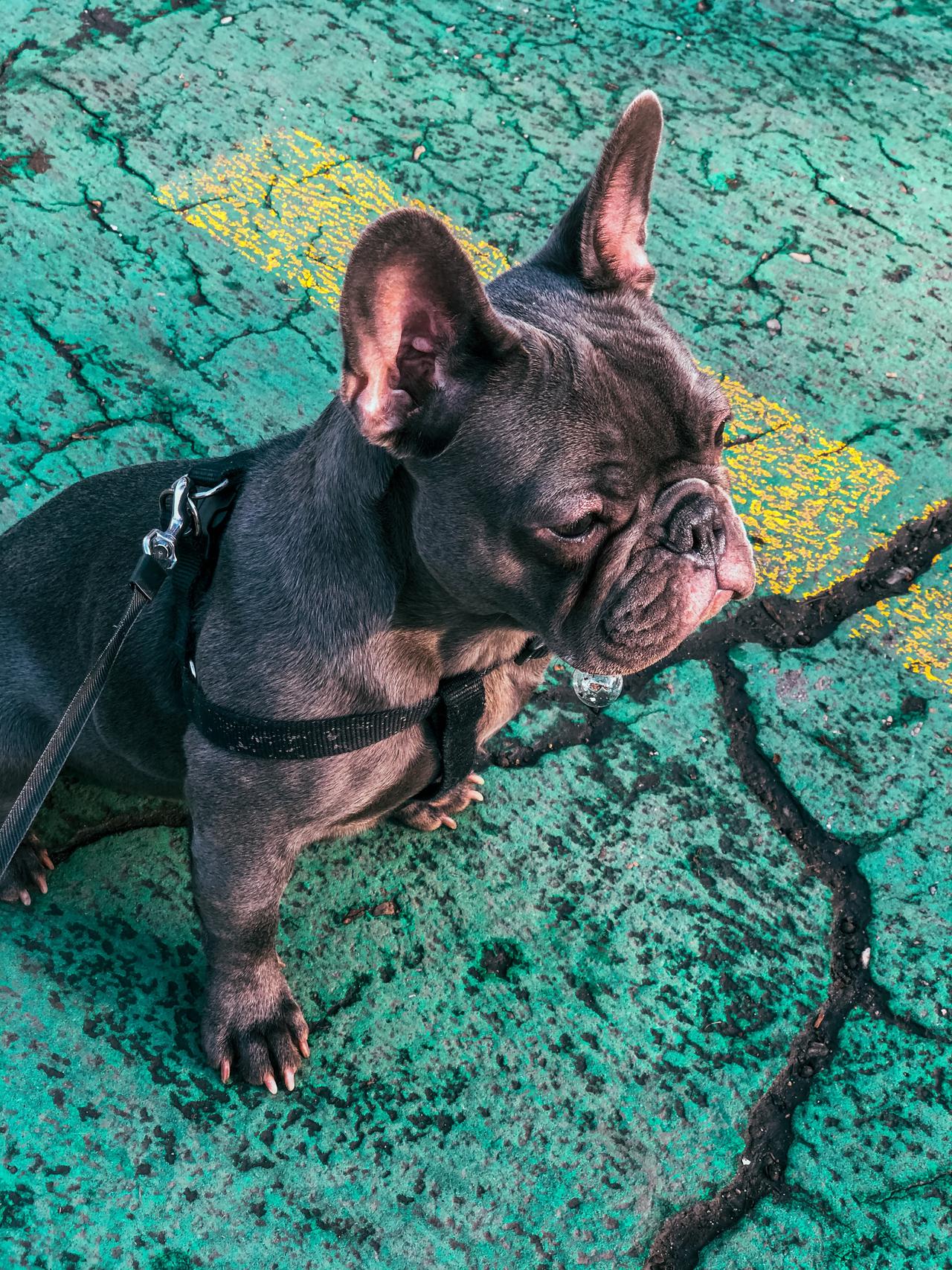Taking your new AKC puppy home is an exciting, if chaotic, time. Along with all the joy a new puppy brings into a home, there’s also stress and anxiety. Puppies are curious, rambunctious, and still learning about the world around them. The first vet visit with a new dog can overwhelm even the most prepared pet parent, so it’s a good idea to make a list of your questions and concerns, so you don’t forget anything.
At Royal Empire French Bulldogs, we breed every litter in a home environment that nurtures the best qualities in puppies to ensure them a lifetime of health. It’s crucial to involve a reputable veterinarian in your puppy’s growth to ensure they continue to thrive. Be sure to ask your vet these four things about your new AKC puppy.

Micro-chipping may sound invasive and high-tech, but it’s a system of tracking lost dogs that has been around since 1996. A vet will inject a microchip about the size of a grain of rice between your puppy’s shoulder blades. It’s the most important thing you can do to reunite with a lost pet.
It’s critical to keep your information associated with the microchip up to date, as it’s how animal control will contact you after finding your lost dog. A microchip can also prove ownership if someone ever steals your AKC puppy.
Even though your AKC puppy is still young, training and good habits can start on the first day you bring them home. An essential part of keeping any dog healthy and safe is teaching them good manners, socialization, and your home’s rules.
A well-trained puppy won’t get into the garbage or eat potentially harmful items or poisonous foods. A blockage surgery to remove pieces of toys, clothing, or other foreign objects can cost a dog parent anywhere from $1000 to $7000.
Regular vet visits, working with a trainer, and careful supervision are some of the best ways to keep your puppy healthy and safe.
Your vet will present you with a vaccination schedule for your puppy to ensure they’re kept safe from common diseases and viruses in your area. Your planned activities with your puppy may also determine the vaccines your vet recommends.
Vaccines are one of the best ways to keep your dog healthy and to protect other dogs in your community against contagious diseases.

Controlling the pet population starts with responsible ownership, so most vets recommend spaying or neutering your AKC puppy around six months of age. Other factors contribute to this procedure’s timeline, so discuss your specific puppy’s needs with your veterinarian.
Spaying and neutering will also support your dog in living a long, healthy life. The procedures eliminate risks from breast cancer, testicular cancer, uterine infections, and prostate problems in dogs.
We breed champion lines of AKC French bulldogs, available for pickup in Southern California or shipped nationwide. Our dams and sires come from European lines, and every breeding pair is DNA tested to ensure their perfect health. Throughout our 20 years of experience in breeding French bulldogs, we’ve prioritized the dogs’ health, happiness, and overall well-being above all else.
We offer payment plans for our puppies, which you may reserve at birth. Check out our upcoming litters and get to know the parents of your future puppy.
